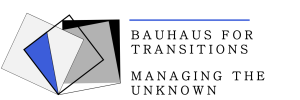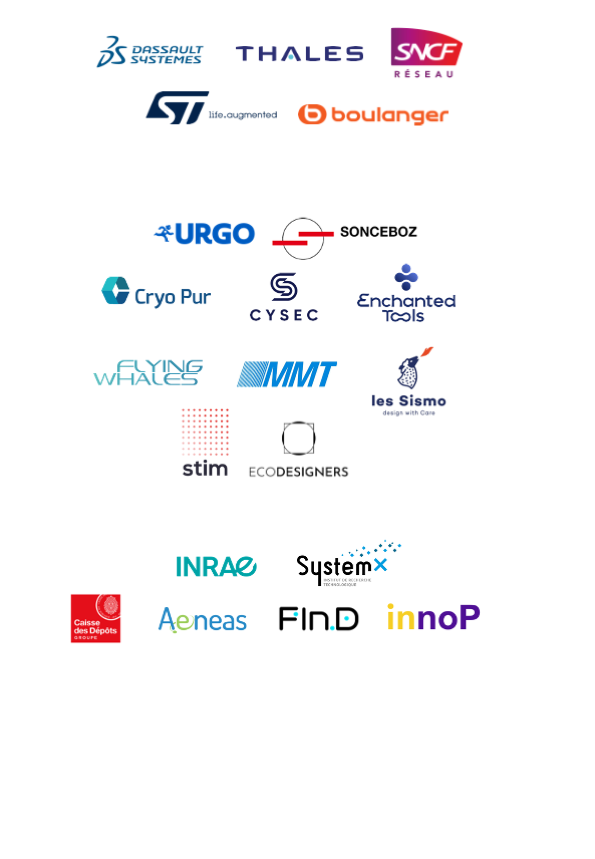Bauhaus of Transitions
Managing the Unknown and Design-Oriented Management Science
On October 15, 2020, the President of the European Commission called for the development of new Bauhauses inspired by the famous design school created in Germany in 1919, to address contemporary transitions (environment, health, mobility, materials, energy, agri-food).
The Bauhaus for Transitions – Managing the Unknown and Design-Oriented Management Sciences- aims to develop at Mines Paris PSL one of these 21st-century Bauhauses for executives, leaders, scientists, and civil servants who are today inventing more desing-oriented management in response to contemporary challenges and risks. This Bauhaus of Transitions aims to be the laboratory of a school of management of the unknown that several socio-economic actors are calling for.
The Bauhaus of Transitions is supported by organizations that want to participate in the development of a new culture of management of the unknown – large companies, intermediate-sized enterprises, SMEs, and startups, as well as public and associative actors. It relies on a global network of reference teams (universities, companies, public authorities…). It is carried by researchers from the Centre for Management Science-i3 (UMR CNRS) of Mines Paris – PSL and is based on the experience and scientific advances obtained by the chairs of Design Theory and Methods for Innovation (DTMI), and Theory of the Enterprise (Governance Models and Collective Creation).
DIAGNOSIS: BUILDING NEW CAPACITIES FOR COLLECTIVE ACTION TO FACE CONTEMPORARY UNKNOWNS
The unknowns of transitions call for a new regime of responsible innovation, which is not Schumpeterian creative destruction but preservative creation. Executives, scientists, and leaders are led to assume a conceptive responsibility: to develop creative, supportive, and sustainable collective action capacities, which are highly exploratory while being deeply integrative.
These new conceptive responsibilities require new competencies: to reason rigorously in the unknown to become more inventive, to integrate and coordinate the most heterogeneous designers, professionals or not, to know how to create and implement new organizations and new governance adapted to today’s challenges.
The development of tools and methods necessary for this new management presupposes building today’s creative heritages where a logic of strong generativity and exploration and a logic of preservation can be articulated.
THE THREE COMPONENTS OF THE BAUHAUS DES TRANSITIONS: TRAINING, RESEARCH, STUDIO FOR THE MANAGEMENT OF THE UNKNOWN OF TRANSITIONS
Fundamental research with a program divided into 5 main axes: Theory of creative heritages; Science and design; Design-oriented management; HR-cognition-leadership-education and the unknown; Institutions and policies for the unknown.
Research-training with actions aimed at developing the managerial skills of executives, scientists, and leaders to manage in the unknown, i.e., organizing the design of decisions in all areas of contemporary transitions. Skills are acquired in action, on subjects of transitions and crises. They lead to the development of a training doctrine and original methods, which are intended to be developed by professional organizations that will feed the school of management in the unknown.
Research-utopia with a ‘Studio’ to collectively explore the utopias of management for transitions, bringing together multiple partners (companies, institutions…) and a place of invitation for French and foreign researchers.

Our partners
We thank our partners for their support

